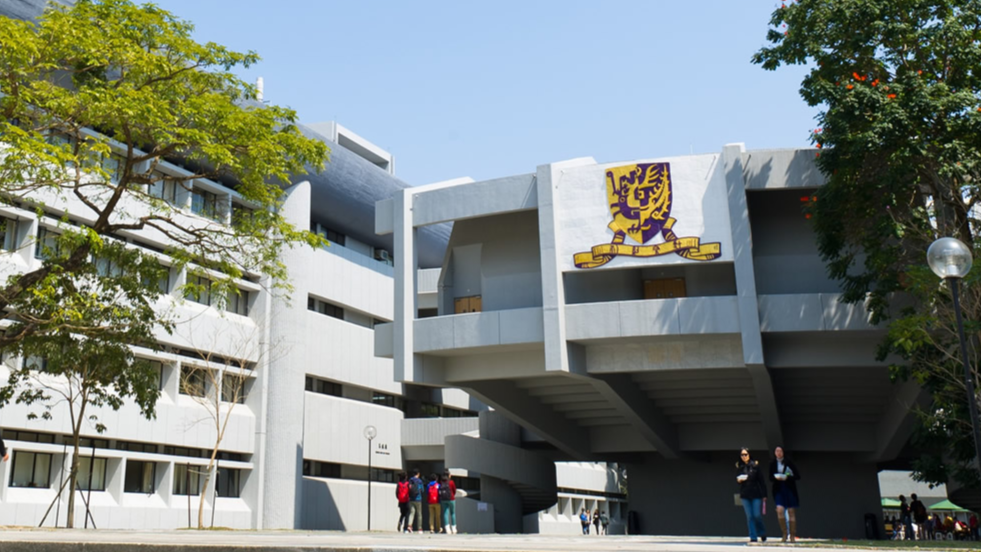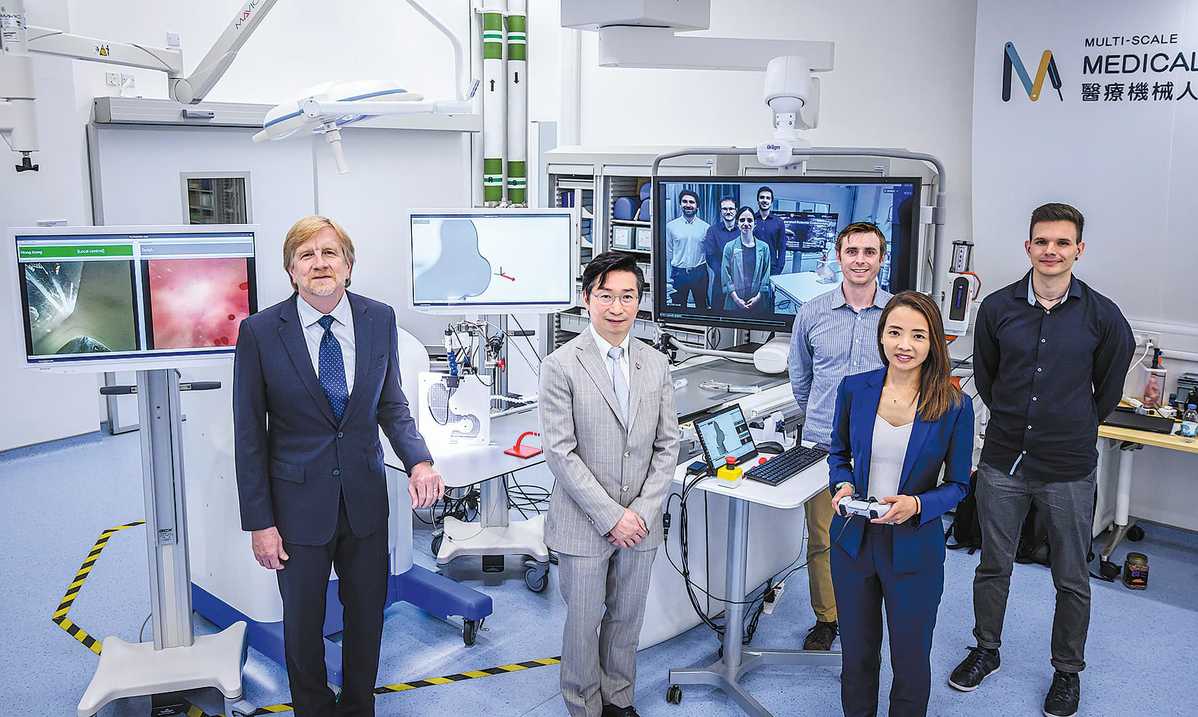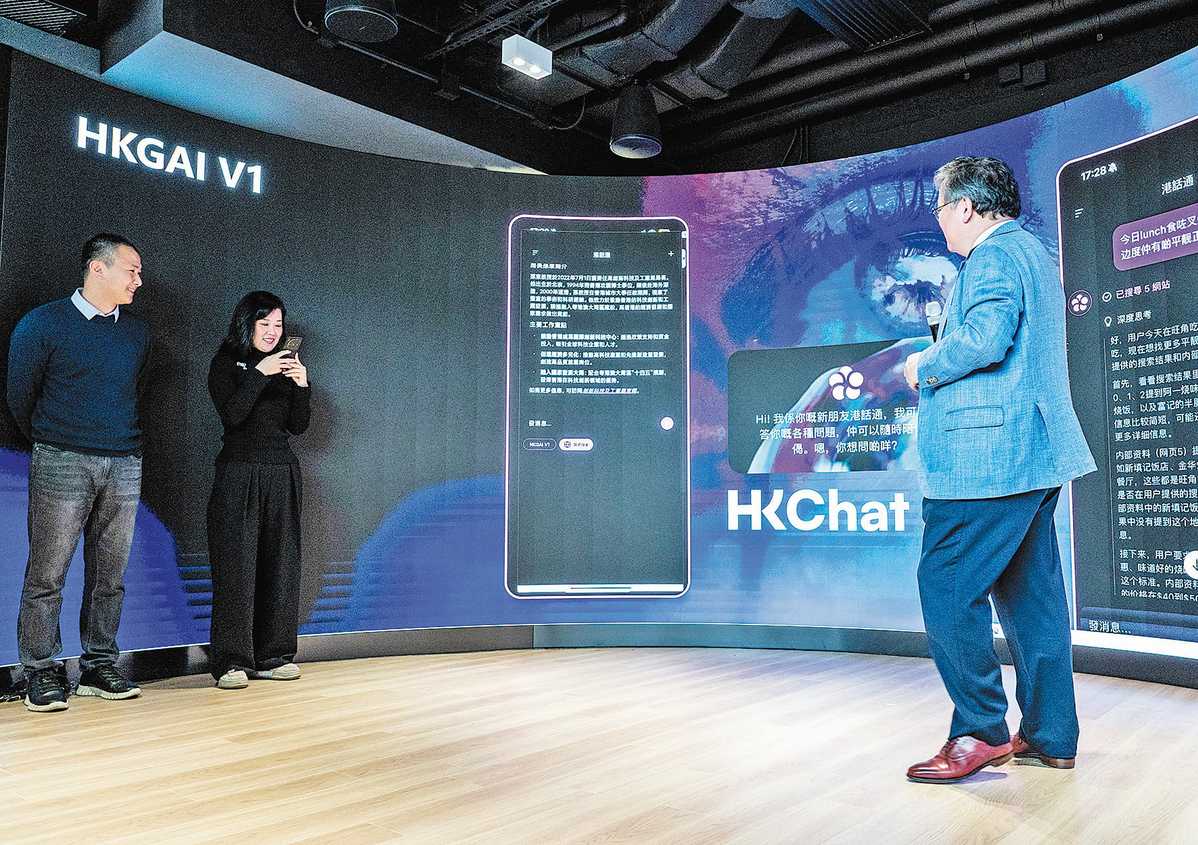Administration's crackdown on Harvard viewed as opportunity to lure top students, research talent to the city

When one door closes, another opens — and the Hong Kong Special Administrative Region is positioning itself as a destination for academics and students potentially locked out of United States tertiary institutions.
The city's world-class English-instruction universities and deep integration with the Chinese mainland's booming innovation ecosystem offer a compelling alternative for elite researchers barred from top US universities like Harvard, amid the Trump administration's escalating scrutiny.
For the SAR, this is a golden opportunity to bolster its talent pool — but experts warn that lingering challenges could undermine its ambitions.
Chronic shortages in on-campus housing and sky-high living costs, risk pricing out talent from developing countries.
Meanwhile, an outdated focus on publishing journals over research that has real-world impact is squandering Hong Kong's strategic advantage of access to mainland industrial clusters and markets, the experts said.
Unless these gaps are addressed, this opportunity may slip away to study destinations such as Singapore or Sydney, they warned.
Uncertainty in US
Harvard University's international students have endured a roller coaster of turmoil this year, starting with an executive order on Jan 29 calling for tougher enforcement of government efforts against antisemitism.
The administration has intensified its crackdown on US higher education institutions, accusing some of them of failing to address antisemitism during pro-Palestinian campus protests — with Harvard bearing the brunt.
The financial cutbacks to Harvard began in April with suspension of $2.2 billion in federal funding, followed by a $450 million cut to grants in May, and threats to revoke the university's tax-exempt status.
Other measures by the Trump administration targeted international scholars directly.

On May 22, the US Department of Homeland Security moved to strip Harvard's authority to enroll foreign students — a move later blocked by a federal court. On June 4, a presidential proclamation sought to bar Harvard's international students from entering the US, only to be again halted by a judge.
With the US government appealing the rulings, 6,800 students and researchers from 140 countries and regions — 27 percent of Harvard's student body — are now in limbo, facing potential deportation if the administration prevails.
What began as a debate over campus free speech has escalated into an existential crisis for Harvard — one of the world's wealthiest university — and Hong Kong is preparing to seize the opportunity.
Lau Chi-pang, associate vice president of Lingnan University and a Hong Kong legislator, believes the growing uncertainties of US policy — coupled with safety concerns — could drive more international students to choose Hong Kong instead.
"Given the current turmoil, students considering Harvard or Yale naturally wonder 'could this happen to me?'" he said.
Geopolitical tensions and anti-Asian hostility have already led many Chinese students to reconsider studying in the US.
In the 2023-24 academic year, India surpassed China as the top source of international students in the US, while Chinese enrollments dropped 4.2 percent year-on-year to 277,000.
Hu Min, president of New Channel International Education Group, which offers application consultancy, noted that US visa uncertainties, especially for STEM students, have forced many to seek backup options and look to Hong Kong — thanks to its blend of academic prestige and stability.
ALSO READ: Hong Kong reaps benefits of US tech talent brain drain in past decade
"Research-focused students prioritize regulatory certainty, and Hong Kong delivers that," he said.
A 2025 report by consultancy EIC Education based on more than 100,000 students applying for 31 study hubs, ranked Hong Kong as the second-most popular study destination for mainland students after the US, citing high-quality education, proximity to the mainland, and favorable talent policies.
Hong Kong universities have moved swiftly to capitalize on concerns over the turmoil in the US, launching targeted campaigns featuring expedited admissions and generous scholarships to attract scholars.
The strategy serves dual purposes: demonstrating academic solidarity, while trying to strengthen Hong Kong's talent pipeline — a critical edge as global competition for elite researchers intensifies.
Early results are promising. Hong Kong's eight publicly funded universities had received 850 transfer inquiries from students affected by US policies, and extended at least 36 formal offers as of the end of June.
Among the most proactive is the Hong Kong University of Science and Technology, which openly courted Ivy League students. Of seven offers made, six were accepted — all with scholarships.
Charles Ng Wang-wai, HKUST's vice president for institutional advancement, said the Trump administration's crackdown might also drive away talented professors — presenting Hong Kong with a golden opportunity to recruit world-class academics.

His optimism is based on the city's improving academic credentials.
The QS World University Rankings 2026 placed five Hong Kong institutions in the top 100, led by the University of Hong Kong, which rose to 11th globally — the highest-ever ranking for a Chinese university.
HKU also ranks second in Asia, trailing only the National University of Singapore in eighth place.
Subject rankings reveal strengths across multiple fields — from computer science to business — mirroring the most sought-after US programs and enhancing Hong Kong's appeal to "Harvard refugees".
Opportunities on doorstep
Experts agree Hong Kong's greatest advantage lies in its integration with the mainland's innovation ecosystem — giving it an edge over rivals like Singapore and Germany.
Access to tech hubs, manufacturing bases, and the vast talent networks in the Guangdong-Hong Kong-Macao Greater Bay Area provide graduates with superior career opportunities while accelerating research commercialization.
For example, HKUST partners with Chinese tech giants Huawei and Tencent in artificial intelligence and robotics, while CUHK is pioneering cross-border biomedical projects.
These collaborations complement Hong Kong's strengths in finance and legal education, anchored by Hong Kong's global financial center status.
Hu, from New Channel, said this multiuniversity, diversified approach is more adaptable to evolving industry demands than Singapore's reliance on just NUS and Nanyang Technological University. "We offer everything Singapore does, plus what it lacks," Lau said, referring to mainland connectivity.
While Singapore benefited from China-US tensions — attracting students who avoided Hong Kong during the 2019 unrest — analysts say this advantage may be short-lived.
As relations between Beijing and Washington stabilize and Hong Kong's security situation improves, Singapore's window of opportunity could close.
Ng said university rankings alone don't reflect an institution's complete strengths. "While Singapore's (academic) ranking climb shows its success in luring global talent with competitive pay, this metric alone doesn't capture an institution's comprehensive capabilities or necessarily guide students in making the best choice for their education," he said.
READ MORE: HK’s international study hub popularity rises as school-area rent hikes
Ng added: "Our graduates gain direct access to China's vast economic network — a drawcard even for students from traditional STEM powerhouses like Germany that offer free programs."
While some universities like City University of Hong Kong have let doctoral candidates replace research papers with patents, experts say Hong Kong's academic system still values publications too much, and practical application too little.
Lau pointed out that all eight public universities focus mainly on theoretical research as the key measure of success. This approach, he argues, makes professors less likely to work with industry.
He has called for reforms to give greater weight to patents and applied research in evaluating professors' career prospects — but so far, without success. "The system must reward practical innovation, not just papers," Lau said.
Hu said universities should also value how well professors turn research into profits — which could strengthen universities' real-world impact.
"Once universities produce unicorn startups, their competitiveness will go beyond rankings and solidify their role as true innovation engines," he said.
The Greater Bay Area's booming tech startup scene is ideal for nurturing future leaders, Hu said. To tap into this potential, he suggested changes like letting student entrepreneurs take time off to focus on their businesses, and allowing students to earn academic credits by building startups.
He also proposed using Hong Kong's strong financial system to connect student entrepreneurs with investors, helping turn ideas into businesses.

Internationalization dilemma
Hong Kong has long relied on students from developing economies to internationalize its campuses, luring them with grants and immigration benefits.
Over the last five years, The Hong Kong PhD Fellowship Scheme, established by Research Grants Council of Hong Kong, increased its number of places from 250 to 400 annually, offering a yearly stipend of HK$337,200 ($42,960) and HK$14,000 a year for research and travel.
But experts warn such a system is financially unsustainable.
Wong Yuk-shan, who retired as the Research Grants Council chairman last year, said the cost of nurturing an undergraduate student in Hong Kong is around HK$380,000 a year — an amount so high that universities usually suffer a loss. Some universities have commercialized graduate programs to offset costs, which risks eroding academic quality.
Students from emerging economies could think twice about studying in Hong Kong, as the city's rising costs become prohibitive.
In 2024, Hong Kong ranked among the world's most expensive cities, with student housing costs soaring due to record rents and chronic shortages.
On average, six students compete for one bed on the campuses of the City University of Hong Kong and The Hong Kong Polytechnic University, a 2023 study by the global real estate company Cushman & Wakefield revealed. Half of the eight public universities have a student-to-bed ratio higher than five.
On-campus dorms are so scarce they're allocated by lottery, often limited to first-year students. Most students rent off-campus from their second year onward, said Hu from the consultancy.
Rents for some units near The Hong Kong Polytechnic University reached over HK$20,000 per month this year, according to real estate agent Spacious.
Inflation could dampen the appeal of Hong Kong to talent from countries like India and Vietnam — the very students who are enriching US and European campuses, experts said.
Proposed fixes include easing housing costs, allowing part-time work, and balancing graduate program commercialization with academic integrity.
Hu believes Hong Kong's property market downturn should be capitalized on to develop a student housing sector.
In June, the Development Bureau and Education Bureau introduced a pilot scheme streamlining the conversion of hotels and commercial buildings into student dormitories. Under the plan, the majority of conversions won't require additional planning approvals, with the first projects expected to open by the 2026/27 academic year.
This approach could simultaneously address accommodation shortages and help stabilize property prices.
Since Nov 1, 2024, the Hong Kong Special Administrative Region government has waived part-time work restrictions for nonlocal undergraduates to encourage post-graduation retention. Lau advocates expanding this to postgraduates to offset expenses.
With over HK$20 billion allocated annually to higher education, Hong Kong's eight public universities can attract top professors and maintain academic excellence, However, Wong warns against prioritizing profits over quality education.
The QS World University Rankings 2025 showed of the UK universities, 22 percent climbed in position, 58 percent dropped, and 20 percent maintained their rankings. In the 2025 ranking, 15 UK universities made the world's top 100, two fewer than the previous rankings.
"British universities, once world-leading, declined in standards over the past 30 years due to funding cuts. Their overreliance on international student fees diluted educational quality," Wong said. "We must avoid repeating this pattern."
Zhao Yimeng contributed to this story.
Contact the writer at lilei@chinadailyhk.com


